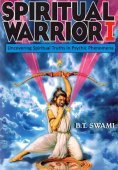Rhetoric, Rhetorical: 2 definitions
Introduction:
Rhetoric means something in Hinduism, Sanskrit. If you want to know the exact meaning, history, etymology or English translation of this term then check out the descriptions on this page. Add your comment or reference to a book if you want to contribute to this summary article.
In Hinduism
Purana and Itihasa (epic history)
Source: Shodhganga: Elements of Art and Architecture in the Trtiyakhanda of the VisnudharmottarapuranaKnowledge of Rhetoric and Prosody (in Sanskrit: Chandojñāna) was considered one of the “sixty four kinds of Art”, according to the Kamasutra of Vatsyayana.—Indian tradition, basically includes sixty four Art forms are acknowledged. The history of Indian Art covers approximately five thousand years which pre sents a rich and almost continuous record. The references of sixty four kinds of Kala (कला, kalā) are found in the Bhagavatapurana, Shaiva-Tantras, Kamasutra of Vatsyayana etc.

The Purana (पुराण, purāṇas) refers to Sanskrit literature preserving ancient India’s vast cultural history, including historical legends, religious ceremonies, various arts and sciences. The eighteen mahapuranas total over 400,000 shlokas (metrical couplets) and date to at least several centuries BCE.
Yoga (school of philosophy)
Source: ORA: Amanaska (king of all yogas): A Critical Edition and Annotated Translation by Jason BirchRhetoric is denoted by the Sanskrit term Ālaṅkṛti, according to the Amanaska Yoga treatise dealing with meditation, absorption, yogic powers and liberation.—Accordingly, as Īśvara says to Vāmadeva: “[...] Not by studying the doctrines of scriptural exegesis, logic, planets and mathematics, nor by the Vedas, Upaniṣads, Dharmaśāstras [and the like]; not even by lexicons nor metre, grammar, poetry nor rhetoric (ālaṅkṛti); the sage's attainment of the highest reality is gained only from the oral teachings of his own Guru. [...]”.

Yoga is originally considered a branch of Hindu philosophy (astika), but both ancient and modern Yoga combine the physical, mental and spiritual. Yoga teaches various physical techniques also known as āsanas (postures), used for various purposes (eg., meditation, contemplation, relaxation).
See also (Relevant definitions)
Full-text (+731): Vanmaya, Sahokti, Alamkara, Sahityashastra, Rupaka, Alamkarika, Alamkarashastra, Alamkriti, Shuddhanumana, Antadipaka, Sahitya, Shabdalankara, Samsrishti, Alankarik, Samasokti, Shuddhapahnuti, Kavyaprakasha, Alankar, Silesa, Vinokti.
Relevant text
Search found 81 books and stories containing Rhetoric, Rhetorical; (plurals include: Rhetorics, Rhetoricals). You can also click to the full overview containing English textual excerpts. Below are direct links for the most relevant articles:
Alamkaras mentioned by Vamana (by Pratim Bhattacharya)
1: The Kāvyālaṃkārasūtra-vṛtti: A hand-book of Sanskrit Poetics < [Chapter 1 - Introduction]
11: Alaṃkāra-śāstra according to Rājaśekhara (11th century) < [Chapter 2 - The concept of alaṃkāra in Sanskrit Poetics]
1: The early traces of Sanskrit Rhetoric < [Chapter 2 - The concept of alaṃkāra in Sanskrit Poetics]
Mudrarakshasa (literary study) (by Antara Chakravarty)
1. Introduction (the Sanskrit word Rasa) < [Chapter 2 - Delineation of Rasa in Mudrārākṣasa]
6.2. Cāṇakya: As the Hero of the Drama < [Chapter 6 - Other Literary Estimates of Mudrārākṣasa]
The Rhetoric of Science in Paramahansa Yogananda’s < [July – September, 1998]
The Terrible Sonnets of Gerard Manley Hopkins < [April – June, 1983]
Old 'Triveni' Days < [January 1955]
Satirical works of Kshemendra (study) (by Arpana Devi)
3. Rasa or the sentiment < [Chapter 4 - Literary study of the Three Satirical Works]
9.5. Summary of the Sadānandar Kalāghumati (1885) < [Chapter 1 - Introduction]
Shishupala-vadha (Study) (by Shila Chakraborty)
Knowledge of Rhetoric (Alaṃkāra) in the Śiśupālavadha < [Introduction]
Source of the epic Śiśupālavadha < [Introduction]
Śiśupālavadha is an epic < [Introduction]
Sahitya-kaumudi by Baladeva Vidyabhushana (by Gaurapada Dāsa)
Related products

